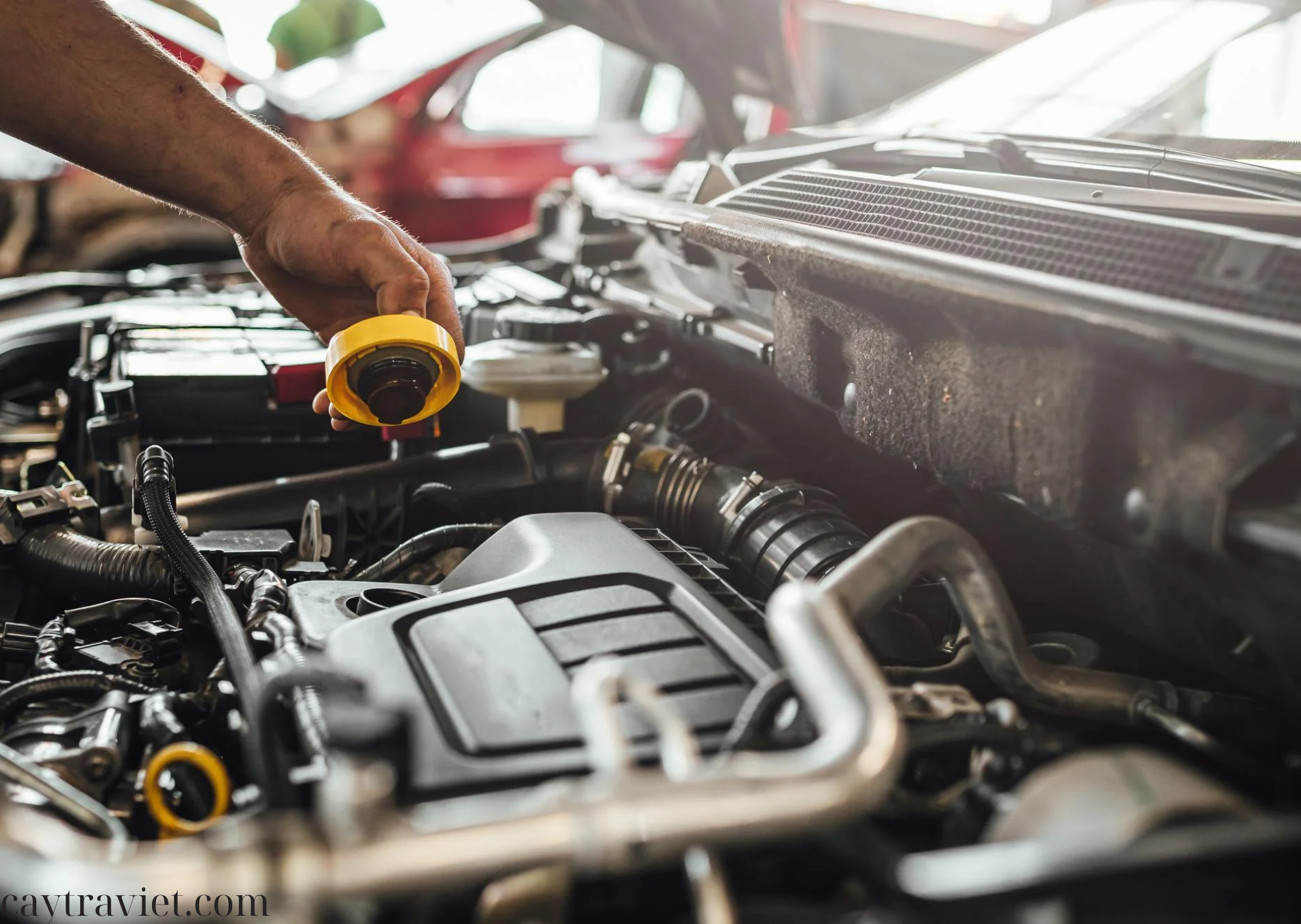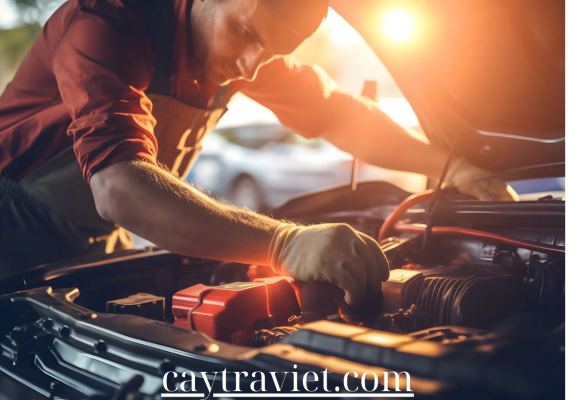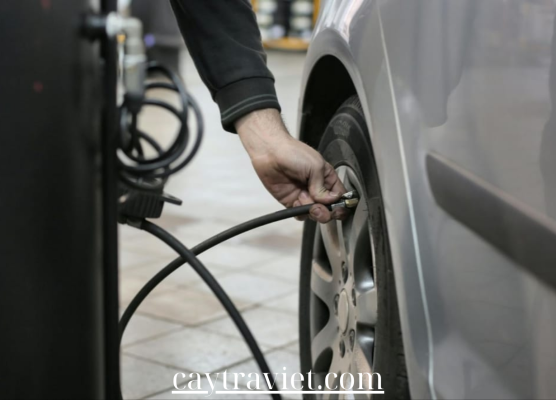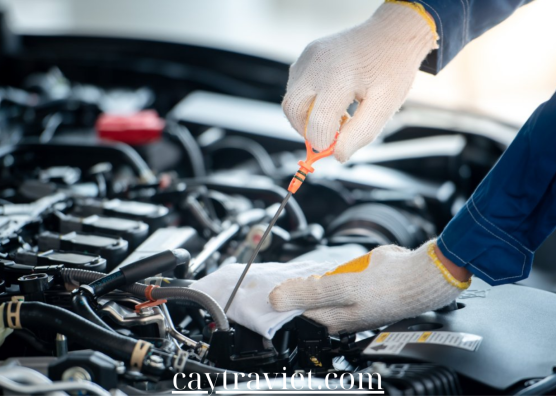Proper car upkeep is essential for ensuring your vehicle remains reliable, safe, and efficient. Regular maintenance not only extends the life of your car but also helps prevent unexpected breakdowns and costly repairs. Here are key practices to follow for maintaining your vehicle in top condition.
1. Routine Oil Changes
a. Importance of Regular Oil Changes
Engine oil lubricates the engine’s moving parts, reducing friction and heat. Over time, oil deteriorates and becomes less effective, leading to potential engine damage if not replaced.
b. Recommended Interval
Typically, oil should be changed every 3,000 to 7,500 miles, depending on your vehicle’s make and model. Always consult your owner’s manual for specific recommendations and use the type of oil specified by the manufacturer.
2. Tire Care
a. Monitoring Tire Pressure
Maintaining the correct tire pressure is vital for safety and fuel efficiency. Under-inflated tires can cause poor handling and increased tire wear, while over-inflated tires can lead to reduced traction and a harsher ride.
b. Tire Rotation and Alignment
Rotate your tires every 5,000 to 8,000 miles to ensure even wear. Additionally, get your wheel alignment checked to prevent uneven tire wear and improve vehicle handling.
c. Checking Tread Depth
Regularly inspect your tire tread depth. Worn-out tires can affect grip and handling, especially in adverse weather conditions. Replace tires when the tread depth reaches the minimum safety level.
3. Brake System Maintenance
a. Inspecting Brakes
Regularly check the condition of your brake pads and rotors. Worn brake pads or damaged rotors can compromise braking performance and safety.
b. Brake Fluid Checks
Monitor brake fluid levels and top up as needed. Brake fluid absorbs moisture over time, which can affect braking efficiency. Have the brake fluid flushed and replaced according to your vehicle’s maintenance schedule.
4. Battery Maintenance
a. Checking Battery Health
Inspect your car battery for corrosion, loose connections, or signs of wear. A well-maintained battery ensures reliable starts and optimal electrical system performance.
b. Battery Replacement
Car batteries typically last between 3 to 5 years. If you notice difficulty starting your car or dimming headlights, it may be time for a battery replacement.
5. Fluid Levels and Leaks
a. Regular Fluid Checks
Regularly check and top up essential fluids such as engine coolant, transmission fluid, power steering fluid, and windshield washer fluid. Proper fluid levels are crucial for vehicle performance and longevity.
b. Identifying Leaks
Look for signs of fluid leaks, such as puddles or spots under your vehicle. Address any leaks promptly to prevent damage and ensure your vehicle operates efficiently.
6. Air Filter Replacement
a. Importance of Clean Air Filters
The air filter prevents dirt and debris from entering the engine, ensuring clean air for combustion. A clogged air filter can reduce engine performance and fuel efficiency.
b. Replacement Schedule
Replace the engine air filter every 12,000 to 15,000 miles, or as recommended by your vehicle’s manufacturer. A clean air filter improves engine performance and fuel economy.
7. Headlight and Taillight Maintenance
a. Checking Lights
Regularly check that all headlights, taillights, and turn signals are functioning correctly. Properly working lights are crucial for safe driving and visibility.
b. Cleaning and Restoration
Clean your headlights to remove dirt and oxidation that can impair visibility. Use a headlight restoration kit if necessary to restore clarity and improve lighting performance.
8. Regular Washing and Waxing
a. Washing Your Vehicle
Regularly wash your car to remove dirt, salt, and contaminants that can damage the paint. Washing helps maintain the car’s appearance and prevents rust and corrosion.
b. Applying Wax
Apply wax every few months to protect the paint and enhance shine. Waxing creates a protective layer that guards against environmental elements and keeps your car looking new.
9. Scheduled Maintenance Checks
a. Following Manufacturer Recommendations
Adhere to the maintenance schedule outlined in your vehicle’s owner’s manual. Scheduled maintenance includes services like belt and hose replacements, transmission fluid changes, and other critical inspections.
b. Professional Inspections
Have your vehicle inspected by a professional mechanic at regular intervals. A thorough inspection can identify potential issues before they become major problems.
Conclusion
Regular and thorough car maintenance is essential for ensuring your vehicle remains in excellent condition, performs optimally, and provides a safe driving experience. By following these essential practices—routine oil changes, tire care, brake system maintenance, battery upkeep, fluid checks, air filter replacement, light maintenance, washing and waxing, and scheduled maintenance—you can extend the life of your vehicle and enhance its reliability. Keeping up with these practices not only helps prevent breakdowns but also ensures your car remains a safe and enjoyable mode of transportation.
FAQ
1. How often should I change my oil?
Oil should typically be changed every 3,000 to 7,500 miles. Check your vehicle’s owner’s manual for specific recommendations.
2. How do I know if my tires need to be replaced?
Signs include worn tread, uneven wear patterns, vibrations, and frequent loss of pressure. Check the tread depth and inspect for visible damage.
3. When should I replace my brake pads?
Replace brake pads if you hear squeaking or grinding noises, experience reduced braking performance, or notice a soft brake pedal.
4. How can I maintain my car battery?
Inspect the battery for corrosion, ensure it is securely mounted, and replace it every 3 to 5 years or when experiencing starting issues.
5. What fluids should I check regularly?
Check engine coolant, transmission fluid, power steering fluid, and windshield washer fluid regularly. Ensure they are at the recommended levels for optimal performance.



